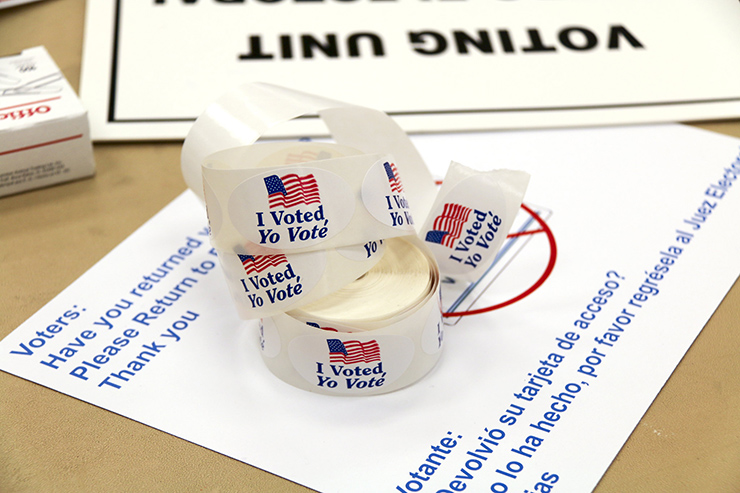For all the things we hear in the news today speciously described as election interference, it is curious that one of the most obvious threats to democracy is rarely classified as such: allowing millions of foreign nationals to enter the country illegally and to potentially vote in American elections.
Allowing illegal aliens to vote in U.S. elections is not just a potential problem; it is happening right now. Congress passed a law in 1996 prohibiting noncitizens from voting in federal elections, but there is no such restriction on local and state elections. Municipalities in California, Maryland, Vermont, and the District of Columbia currently have noncitizen voting. There are efforts underway to bring the practice to other communities.
Noncitizen voting has become a priority agenda item for the anti-borders lobby—right up there with blocking wall construction, advocating sanctuary laws, and counting noncitizens in the U.S. census.
The motivation behind this should be obvious. A large pool of noncitizens, most of whom have little or no understanding of America’s founding principles, can be easily swayed to vote a certain way in critical races. At that point, the floodgates can be opened for a slew of radical laws that most Americans would not support.
But how does allowing noncitizens to vote in municipal elections constitute election interference? The Immigration Reform Law Institute (IRLI) had sued the D.C. Board of Elections, challenging the legitimacy of the city’s noncitizen voting law. In its brief, IRLI lawyers stated the case against the law. Specifically, the extension of the vote from U.S. citizens to aliens automatically dilutes the votes of U.S. citizens and harms them by denying citizens equal protection of the law when that dilution lacks an adequate justification.
That cogent argument was temporarily put on hold when an Obama-appointed district court judge dismissed the case for lack of standing, stating that the plaintiffs “identify nothing that has been taken away or diminished and no right that has been made subordinate to anyone else’s.” Missing from that conclusion is the principle that, as the Supreme Court has held repeatedly, the body politic of this nation consists of its citizens, and the right to govern—and to vote—is “reserved” to them. When their votes are canceled out or diluted by noncitizens, their reserved right to choose their government is indeed diminished, if not taken away.
IRLI will be appealing the case, but the decision is emblematic of the “citizens last” mindset that is prevalent today. New York City, America’s most dangerous sanctuary jurisdiction, had a law for noncitizen voting that was recently struck down by a state appellate court. The New York City Council is now asking the state’s highest court to reverse that ruling and allow more than 800,000 green card holders to vote in city elections.
As New York City grapples with a migrant crisis that even its own liberal leaders claim is an existential one, they are nevertheless so wedded to utopian sanctuary fantasies that they prioritize allowing noncitizens choose the city’s leaders and laws. If they get their wish, noncitizens will be able to vote themselves all manner of benefits, and candidates for office will pander to them at even more absurd levels. The once-great Big Apple’s financial implosion is becoming an inevitability.
In San Francisco, another failed sanctuary experiment, the city’s elections commission recently welcomed its first noncitizen appointee, an “immigrant rights advocate” from Hong Kong who isn’t legally allowed to vote and gave her post-swearing-in interview in Cantonese.
The issue of noncitizen voting should not, as anti-borders activists would prefer, be reduced to the claim that it is mean and racist to deny all the benefits of citizenship to people who are here illegally. American citizenship is a highly valued designation that most people on the planet would want. Conferring the privileges of citizenship on those who have not met the requirements of the status is to render the status meaningless. Where is the incentive to pursue legal U.S. citizenship when shortsighted, agenda-driven politicians here decide to award those benefits to anyone able to charge our borders?
Introducing noncitizen voting at the local level is the beginning of slow boiling the frog in the pot. This is the strategy that activists for a lawless America prefer. When enough progressive communities have instituted the practice, it will be normalized in the minds of many Americans. From there, the next logical step will be to demand noncitizen access to state and federal elections. That will be the death knell for an America where citizens have a voice in the direction of their country. If citizens do not oppose the push for noncitizen voting now, then moving to do so later may be too late.



Leave a Reply